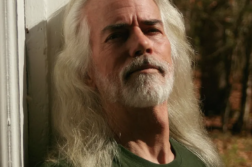IN 1983, when Torch Song Trilogy won the Tony Award for Best Play, John Glines, who produced Harvey Fierstein’s epic gay play from its humble beginnings way off Broadway, thanked his lover. It was the first time a gay man ever publicly thanked his partner on national television (and it would not be the last). But for John Glines, a writer, producer and co-founder of The Glines, a production company dedicated to nurturing gay art in New York through the 1970’s, 80’s and 90’s, it would become a legendary moment not only in gay history but also in his own life.

Born in Santa Maria, California, on October 11, 1933, Glines grew up in the East Bay area of San Francisco. After attending Yale University, Glines worked as mail boy at Channel 5 in New York City. Glines would go on to write for two well-known children’s TV shows, Captain Kangaroo and Sesame Street.
It wasn’t until he founded The Glines (with Larry Lane and Jerry Tobin) that John Glines—and New York theatre—would take a giant step for gay-kind with his award-winning productions of Torch Song Trilogy, William Hoffman’s As Is, and the musical La Cage aux Folles. The Glines would later produce the First and Second Gay Arts Festivals and Jane Chambers’ acclaimed play Last Summer at Bluefish Cove starring Jean Smart. Glines also took to writing his own plays, many produced Off Broadway, until two of the partners died of complications from AIDS.
The Glines continued to support gay playwrights and artists well into the 1990’s, along the way launching a major AIDS fundraising campaign called “Stamp Out AIDS.” The Glines own farewell coincided with the final New York performance of gay writer and gadfly Quentin Crisp. This Off-Broadway event occurred on Christmas night, 1998, which was also Crisp’s 90th birthday.





